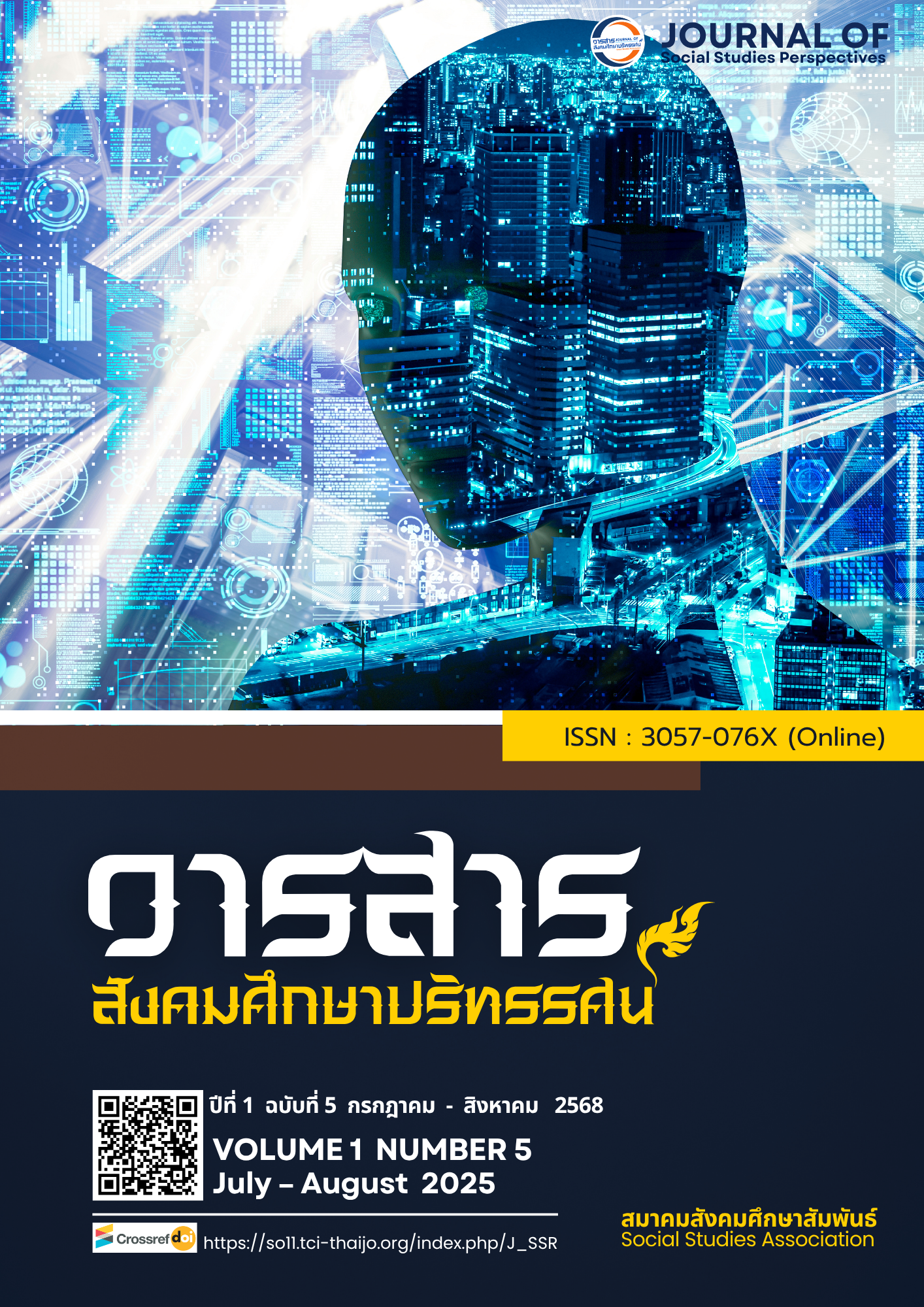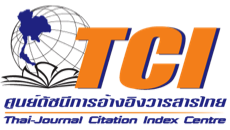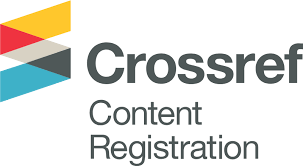AN ANALYSIS OF NEEDS AND DEVELOPMENT GUIDELINES FOR THE EARLY CHILDHOOD EDUCATION CURRICULUM B.E.2568 IN PILOT SCHOOLS IN PHRA NAKHON SI AYUTTHAYA
DOI:
https://doi.org/10.64186/jsp2218%20%20%20Keywords:
Current Situation , Desired Situation , Needs Assessment, Early Childhood Education , Development Framework for the Early Childhood Education CurriculumAbstract
This research aims to: 1) Study the current state and desired state, 2) Assess the needs and necessities, and 3) Develop guidelines for the development of the 2568 BE Early Childhood Education Curriculum in pilot schools in Phra Nakhon Si Ayutthaya Province. The research used a mixed-methods approach, with a sample group of 120 participants, consisting of 45 school administrators selected through purposive sampling and 75 early childhood teachers selected through systematic random sampling. The research instruments included 1) a questionnaire for research purposes and 2) a structured interview. Statistical methods used for data analysis included percentage, mean, standard deviation, and the adjusted importance index for determining the priority of needs. The findings revealed that: 1) The overall current state was at a high level, while the desired state was at the highest level, 2) The necessary needs for the development of the 2568 BE Early Childhood Education Curriculum in pilot schools in Phra Nakhon Si Ayutthaya Province were found to be highest in the areas of curriculum design and development, knowledge and understanding of the curriculum, curriculum implementation, involvement of stakeholders, and curriculum management, and 3) The evaluation of the development guidelines for the 2568 BE Early Childhood Education Curriculum in the pilot schools showed that the appropriateness was at the highest level and the feasibility was at a high level. The key recommendations include: 1) Organizing workshops or PLCs for teachers and administrators to jointly design a curriculum that aligns with the local context and curriculum goals, 2) Conducting workshops for all teachers in pilot schools to enhance understanding of child development, competencies, and 4-dimensional child development, 3) Developing prototype activity sets focusing on play-based learning with children at the center, 4) Organizing meetings or training for parents to understand the new curriculum and their role in supporting their children, and 5) Developing a flexible and appropriate monitoring and evaluation system for early childhood education.
References
Ahmad, N., & Ismail, H. (2021). Contextual curriculum development: A strategic approach to enhance early childhood education in Malaysia. Journal of Curriculum Studies Research, 3(2), 45-58.
Bronfenbrenner, U. (1979). The ecology of human development: Experiments by nature and design. Harvard University Press.
Chand, S. P., & Kumar, K. K. (2025). The role of preschool and primary school teachers in curriculum development. Research on Preschool and Primary Education, 3(1), 157-165.
Che Mat, N., & Jamaludin, K. A. (2024). Effectiveness of practices and applications of student-centered teaching and learning in primary schools: A systematic literature review. International Journal of Academic Research in Progressive Education and Development, 13(3), Article 21733.
Mongkolchaiaranya, P., & Wongwisate, P. (2020). Guidelines for developing a competency-based curriculum for early childhood in local communities. Journal of Social Studies Review, 35(2), 134-150.
Phansang, S. (2020). Curriculum management in early childhood education of schools under the Nakhon Ratchasima Primary Educational Service Area Office 1 (Master’s thesis, Nakhon Ratchasima Rajabhat University).
Piaget, J. (1952). The origins of intelligence in children. International Universities Press.
Pimpa, N., & Moore, T. (2020). Curriculum development for early childhood education: A local context perspective. International Journal of Early Childhood Education, 26(2), 105-120.
Pimraka, T., & Phunpol, W. (2019). Development of early childhood education curriculum to promote local wisdom. Journal of Social Studies Review, 34(3), 150-167.
Rattanamongkol, T., & Srisuwan, T. (2018). Early childhood education and the role of learning through play. Journal of Social Studies Review, 33(2), 78-95.
Ruangsri, N., & Prateepthong, S. (2021). Integrating local wisdom with early childhood learning activities: A case study of schools in a world heritage city. Journal of Social Studies Review, 36(2), 99-115.
Saengmanee, S. (2021). The development of an early childhood curriculum through participatory approach in kindergarten schools (Master’s thesis, Srinakharinwirot University).
Srisaard, B. (2019). Basic research (10th ed.). Suweeriyasarn.
Suwannakit, S., & Phakdeesettakul, S. (2022). Developing a local curriculum to promote multiple intelligences in early childhood. Khon Kaen University Journal of Education, 45(1), 20-35.
Thongsuk, S., & Saengpetch, C. (2020). The role of teachers in promoting early childhood development in primary schools. Journal of Social Studies Review, 35(1), 112-128.
UNESCO. (2021). The importance of quality early childhood education for sustainable development. https://www.unesco.org
Vygotsky, L. S. (1978). Mind in society: The development of higher psychological processes. Harvard University Press.
Wirachai, P., & Suksuwan, W. (2022). Feasibility analysis as a critical step in early childhood curriculum reform. International Journal of Curriculum and Instruction, 14(1), 15-29.
Zhou, Y., & Luo, F. (2023). Transforming early childhood curriculum: Stakeholder collaboration and localized innovation. International Journal of Early Years Education, 31(1), 23-39.
Downloads
Published
How to Cite
Issue
Section
Categories
License
Copyright (c) 2025 Journal of social studies perspectives

This work is licensed under a Creative Commons Attribution-NonCommercial-NoDerivatives 4.0 International License.
The article is published under the Creative Commons Attribution-NonCommercial-NoDerivatives 4.0 International (CC BY-NC-ND 4.0) license, which allows others to share the article while giving appropriate credit to the author. It prohibits the use of the article for commercial purposes or the creation of derivative works. Any other reuse or reproduction requires permission from the journal.










